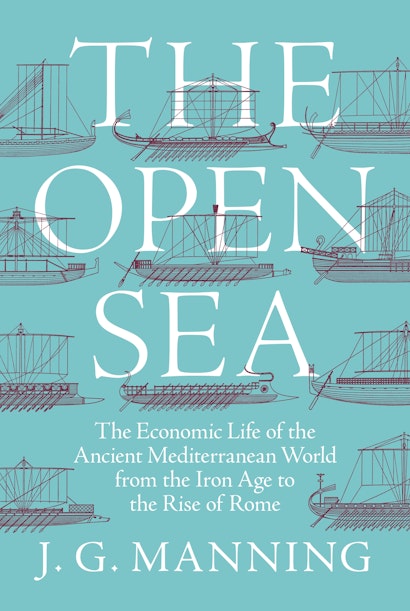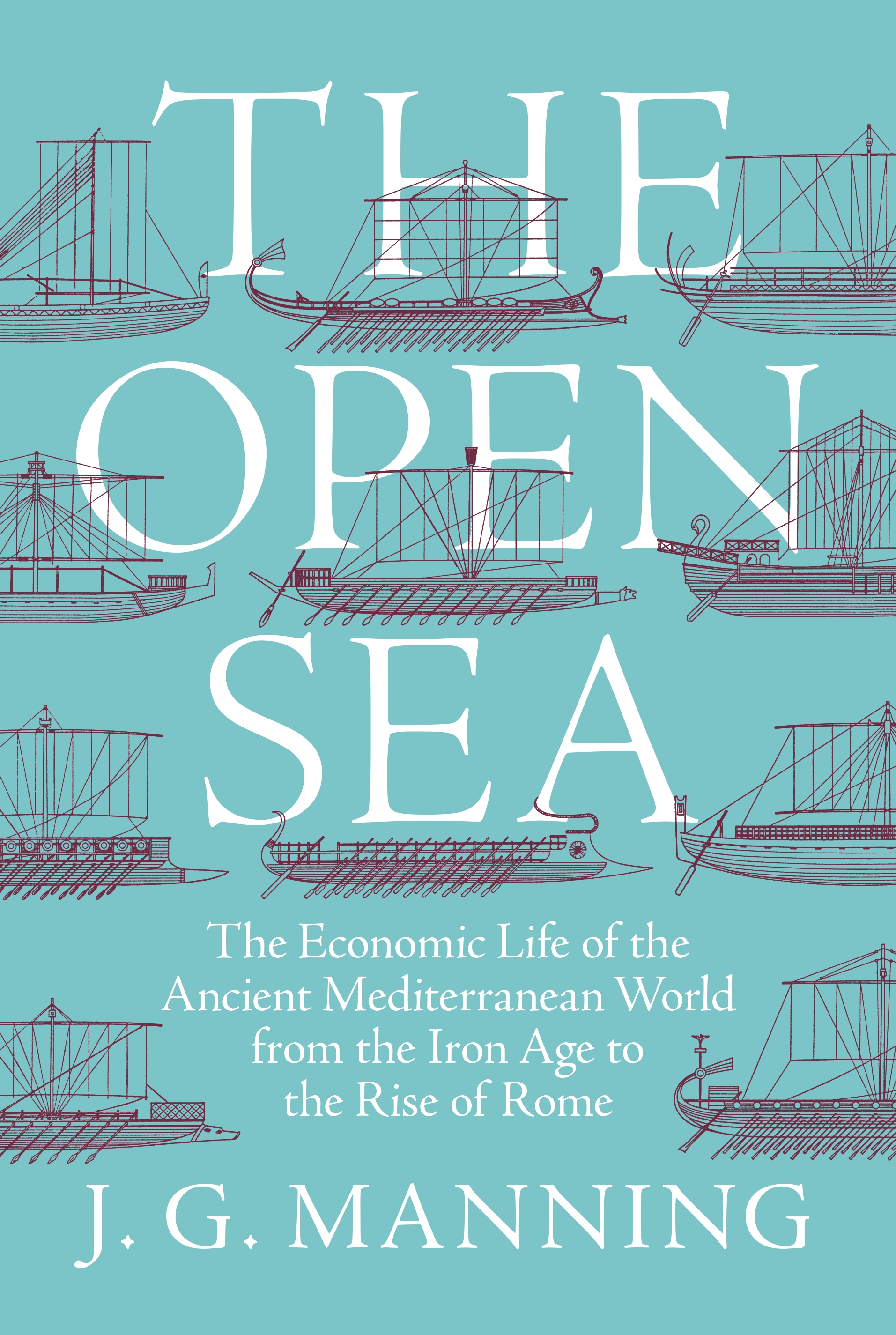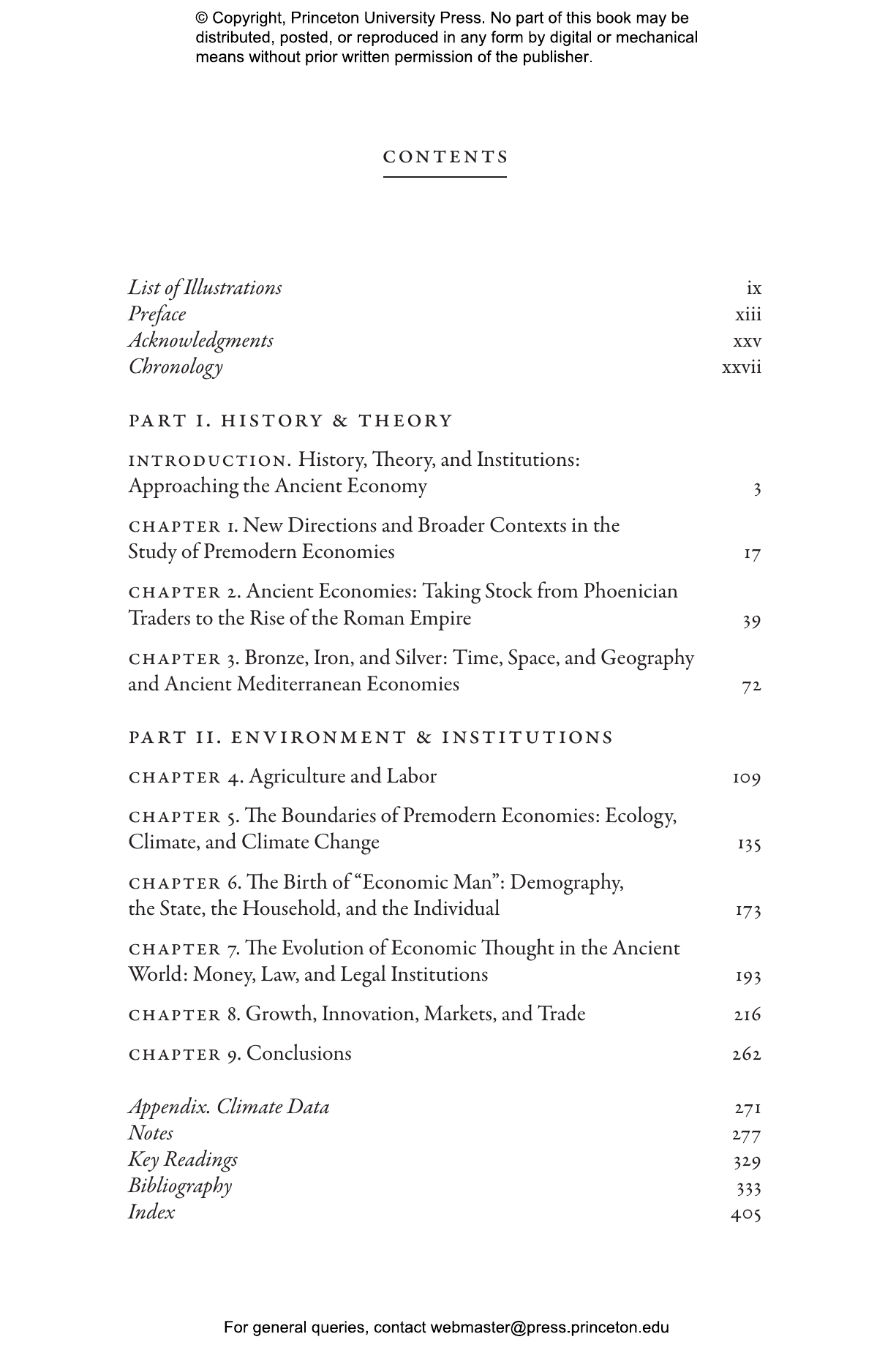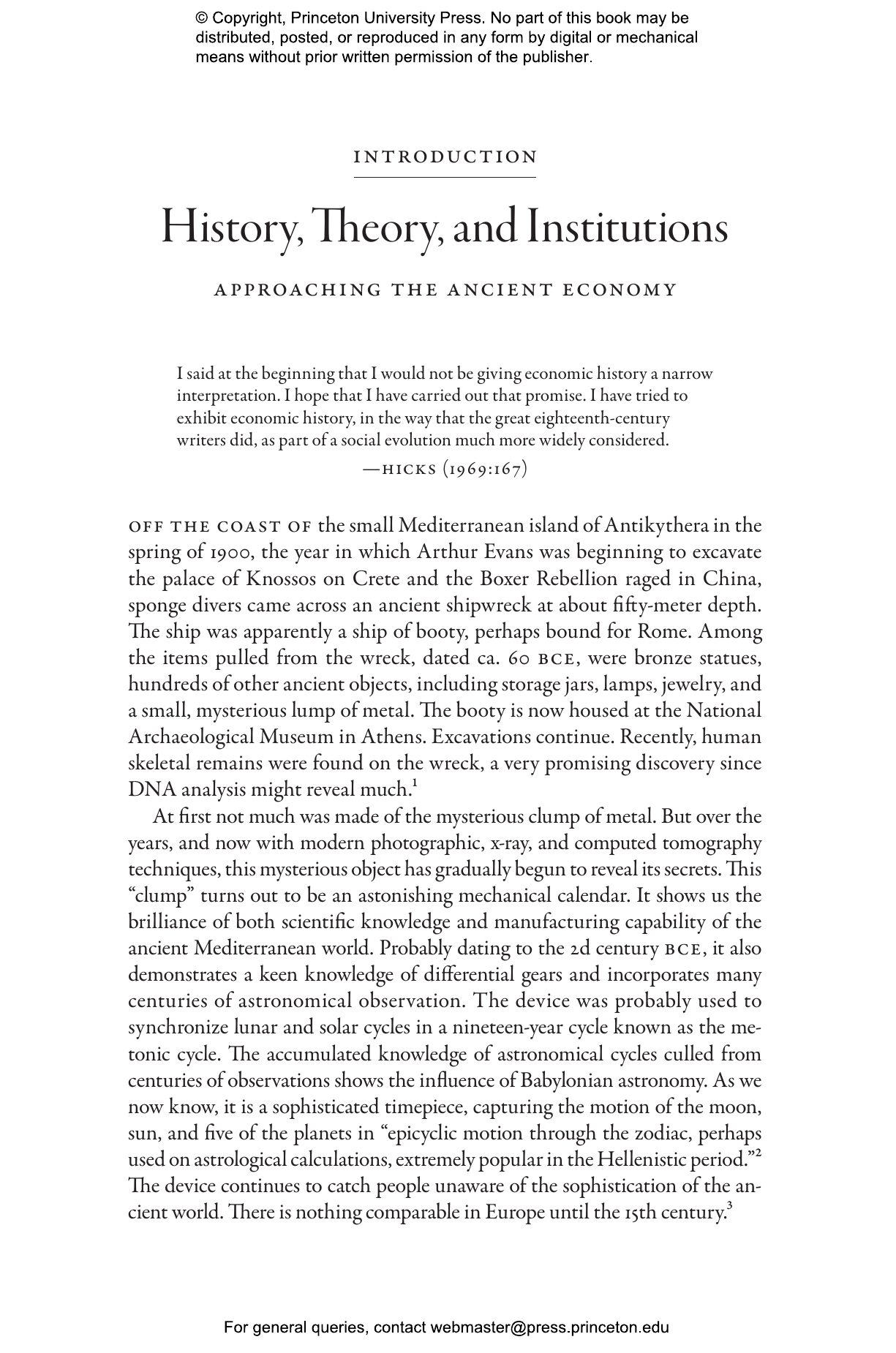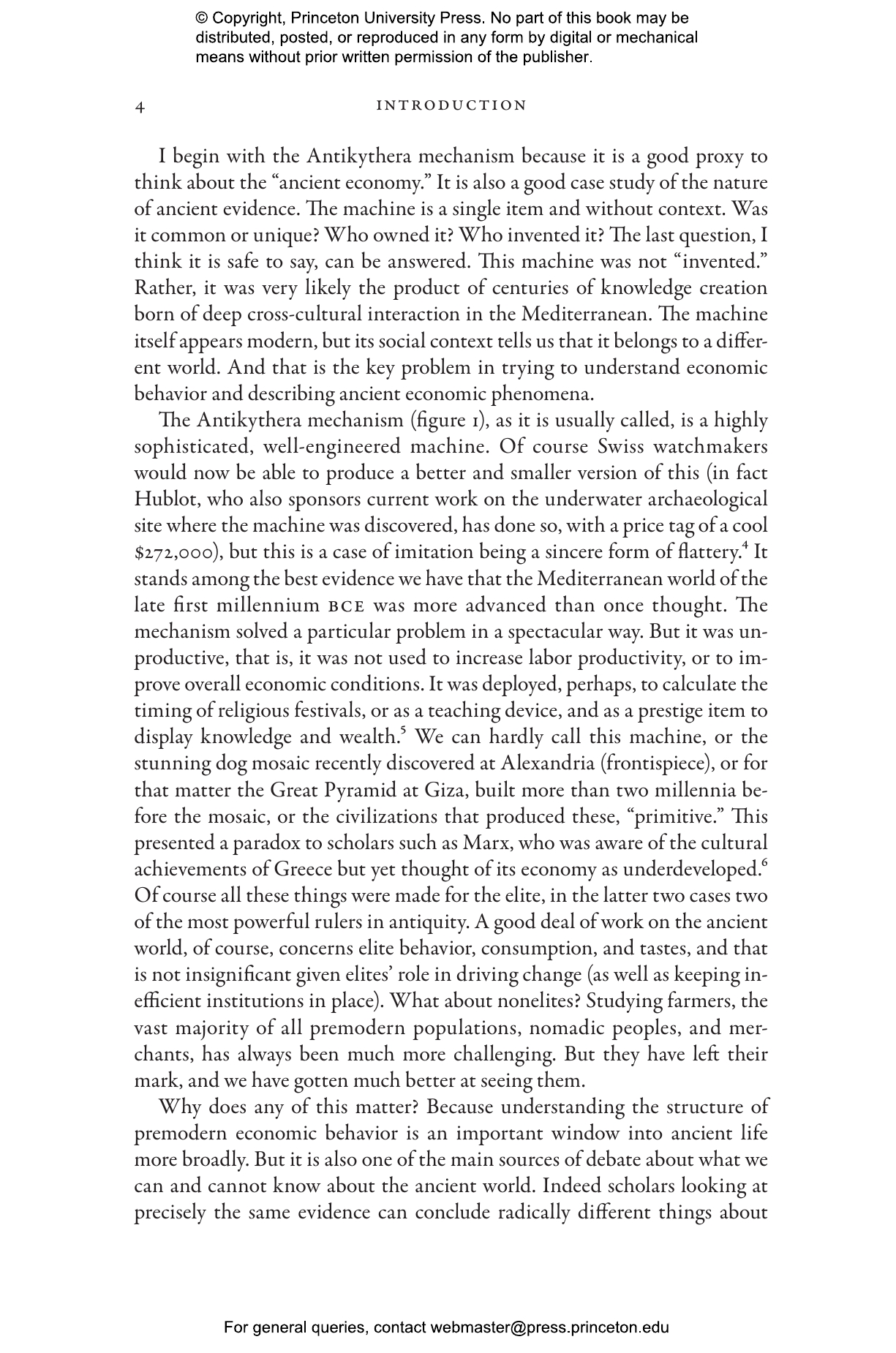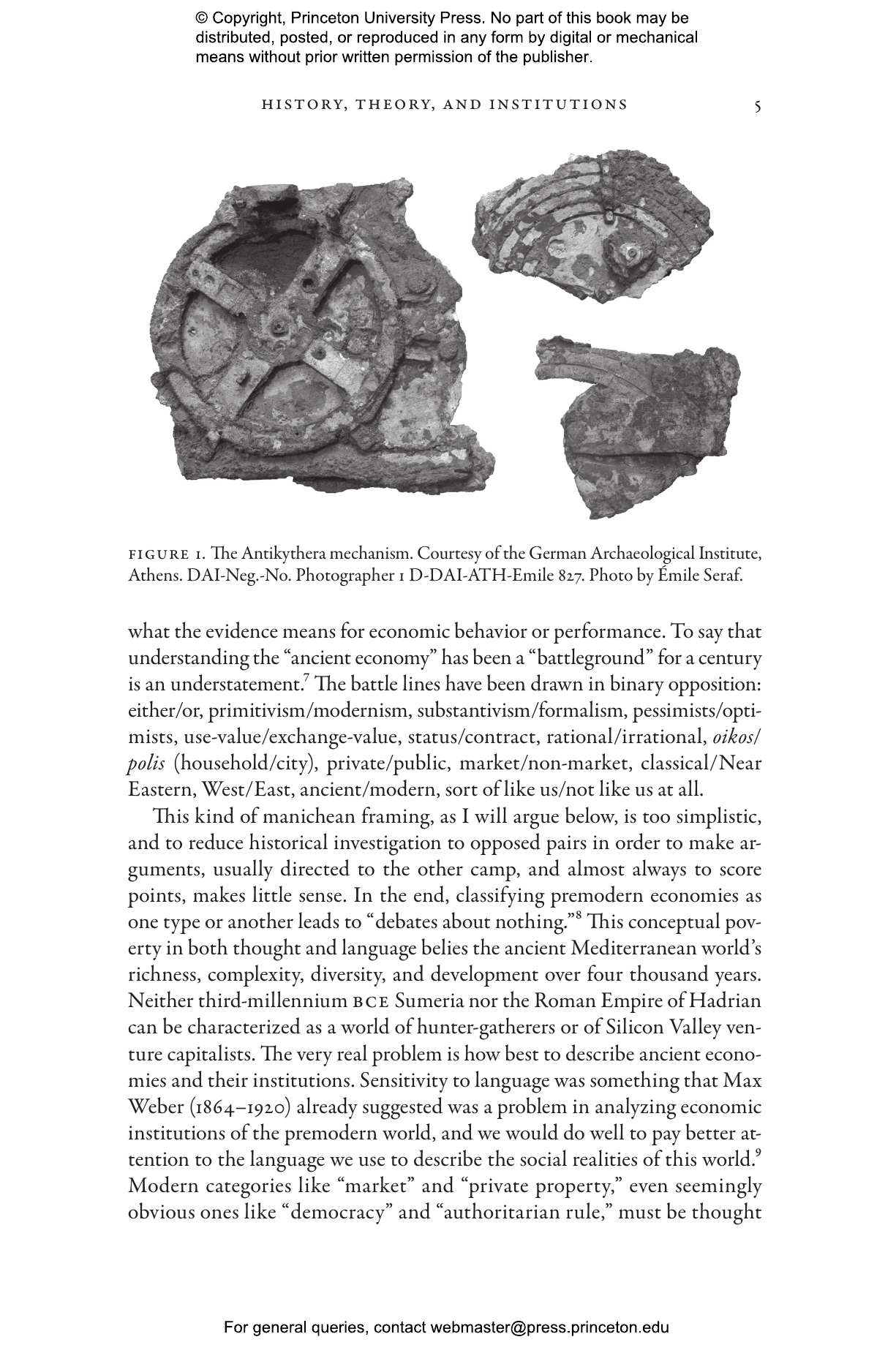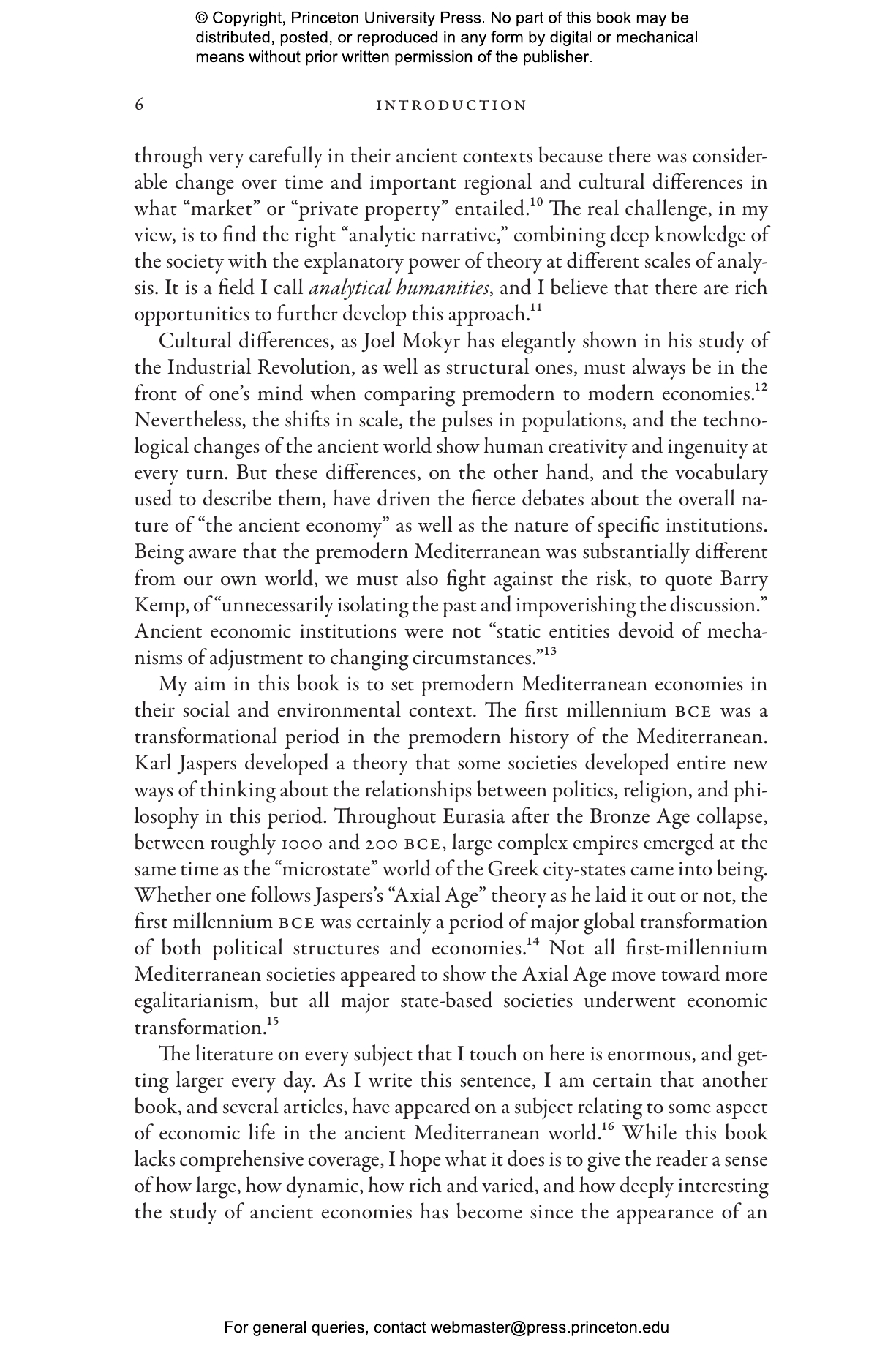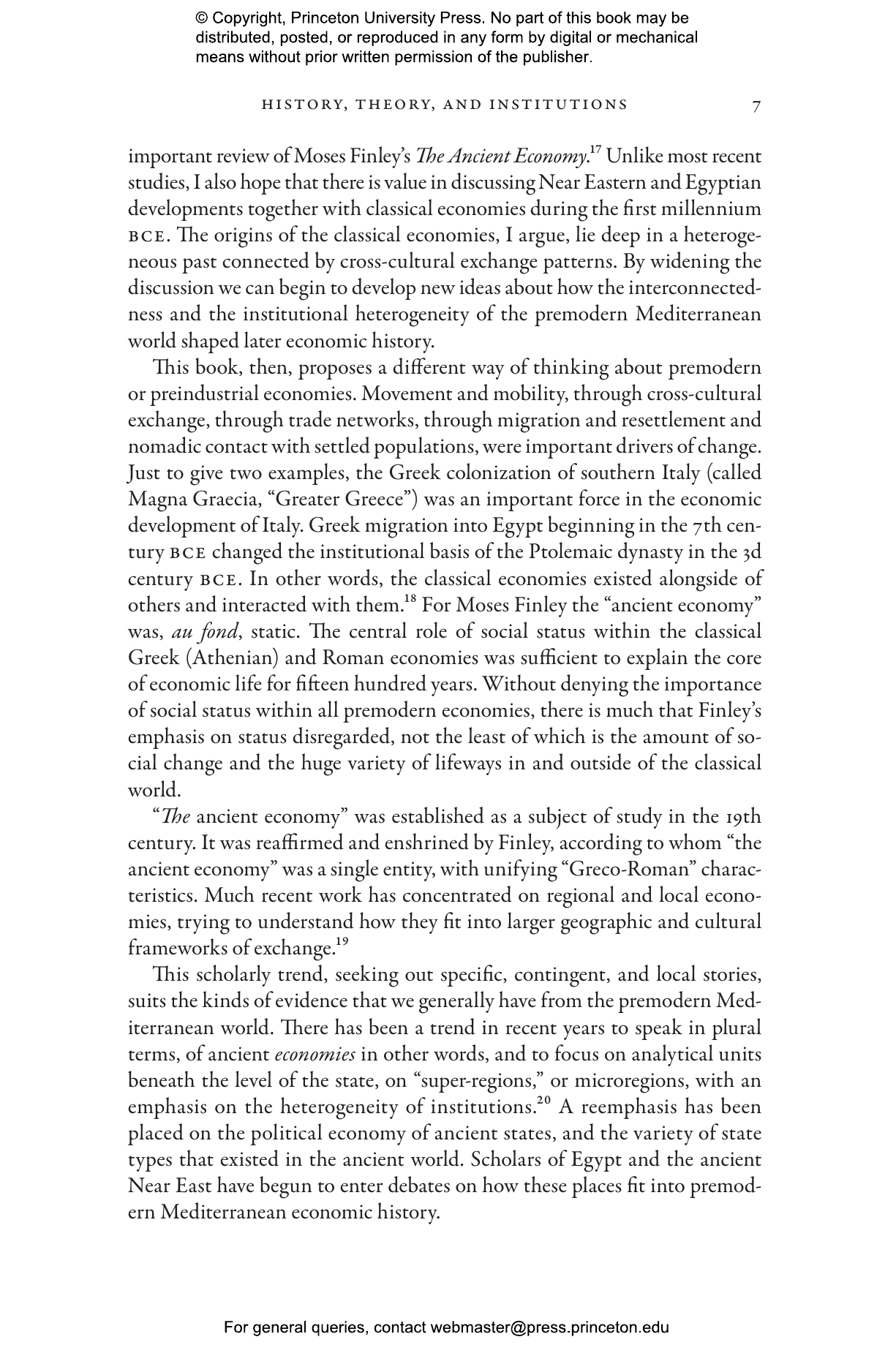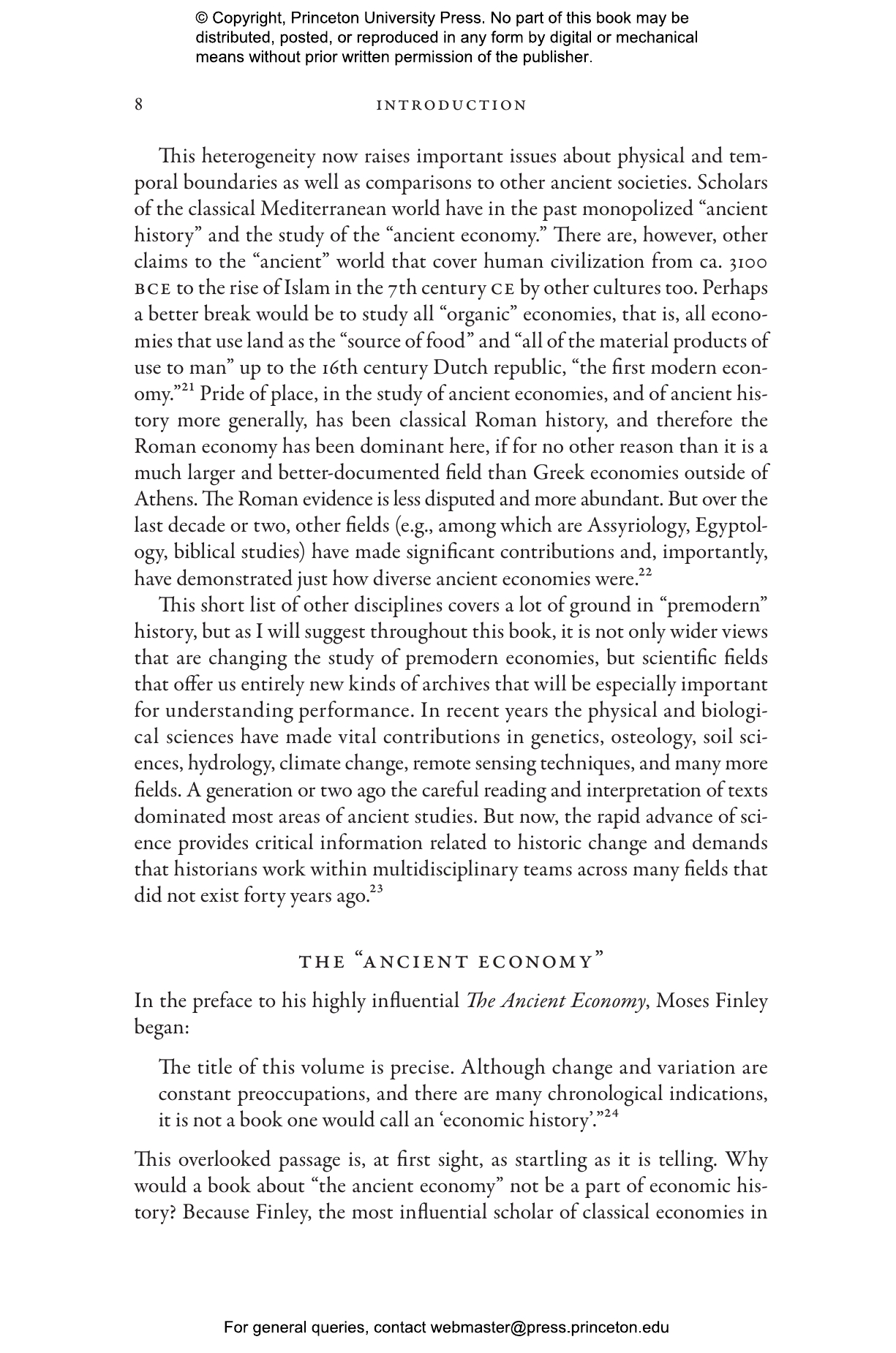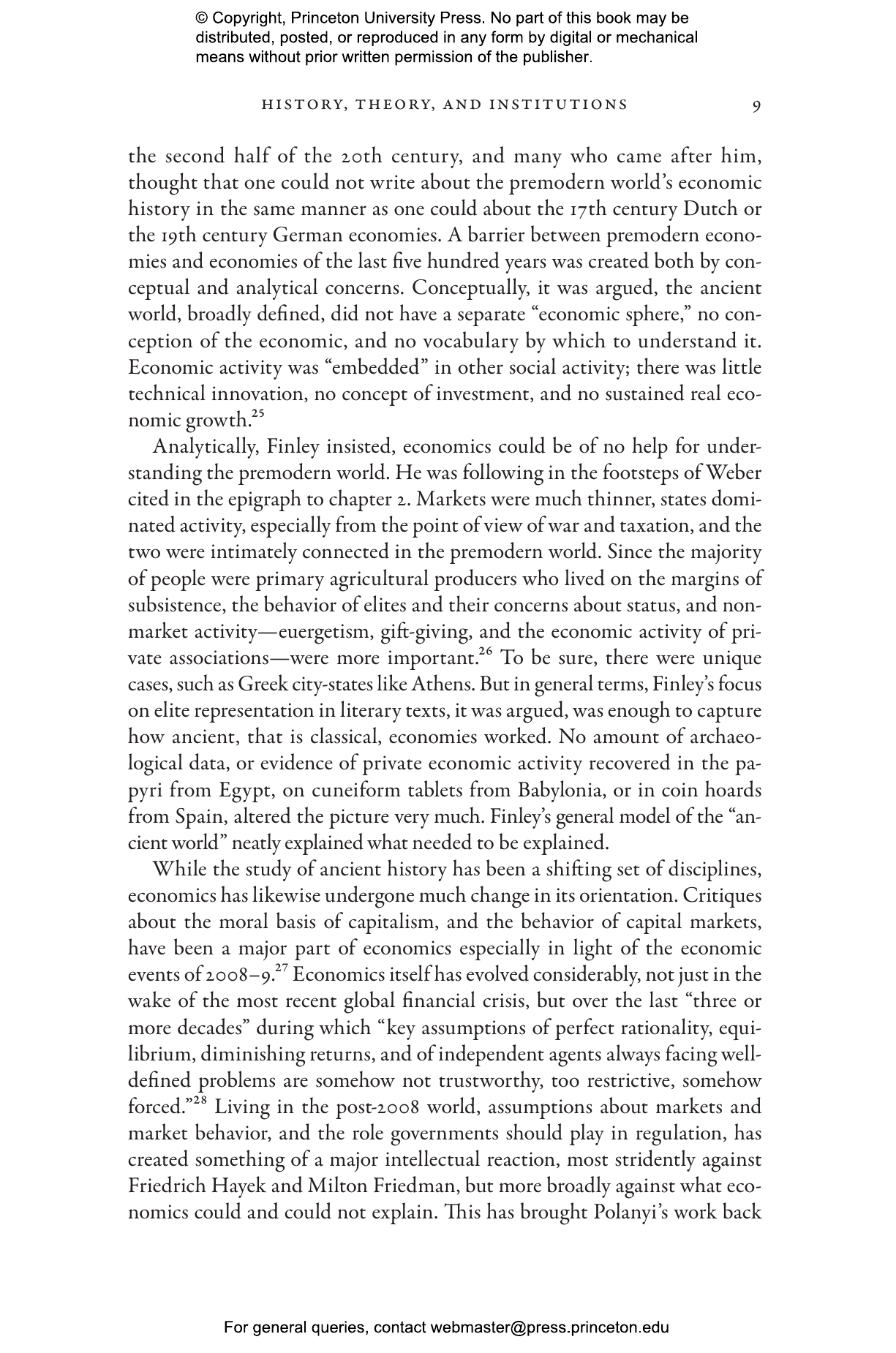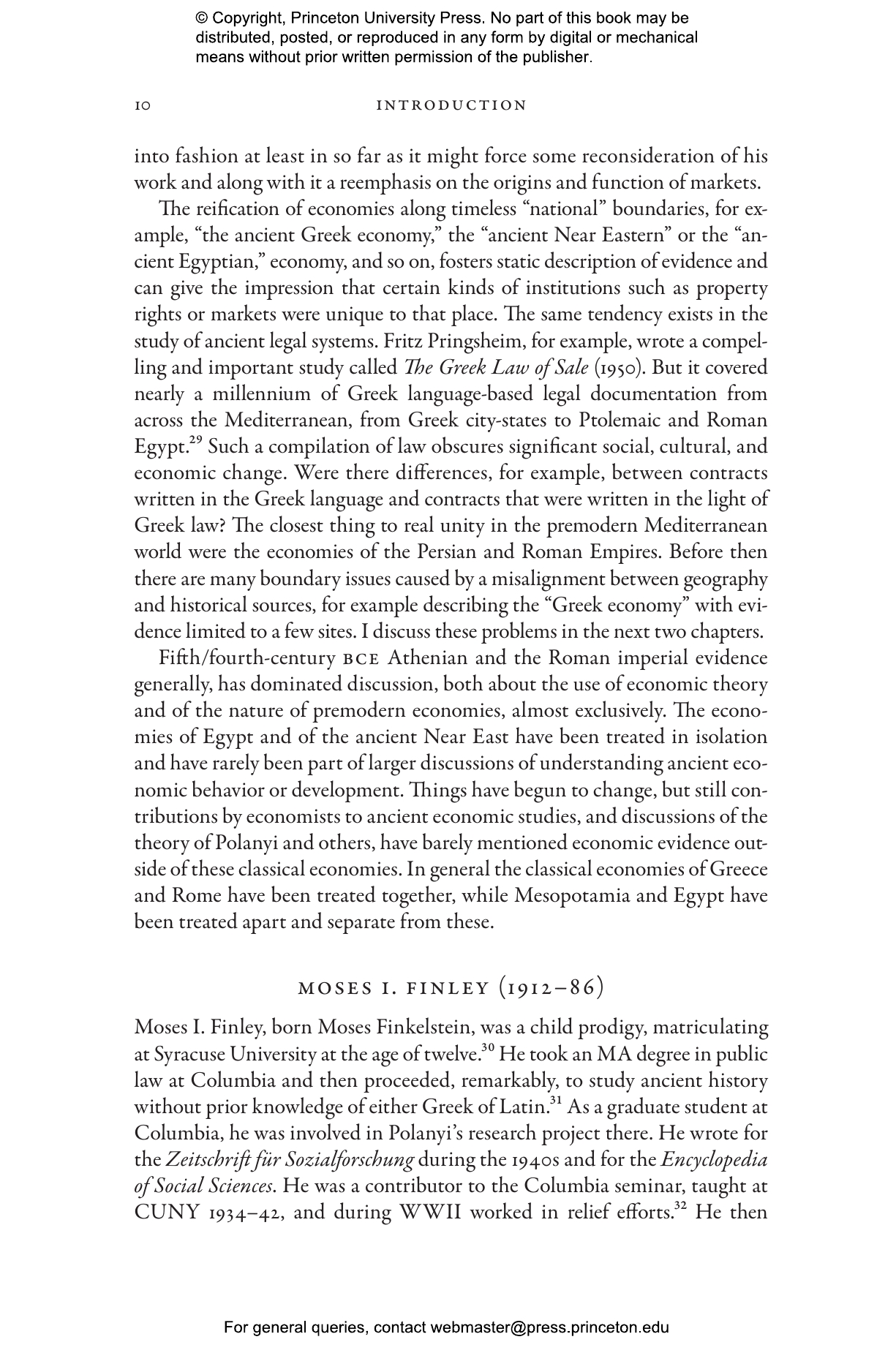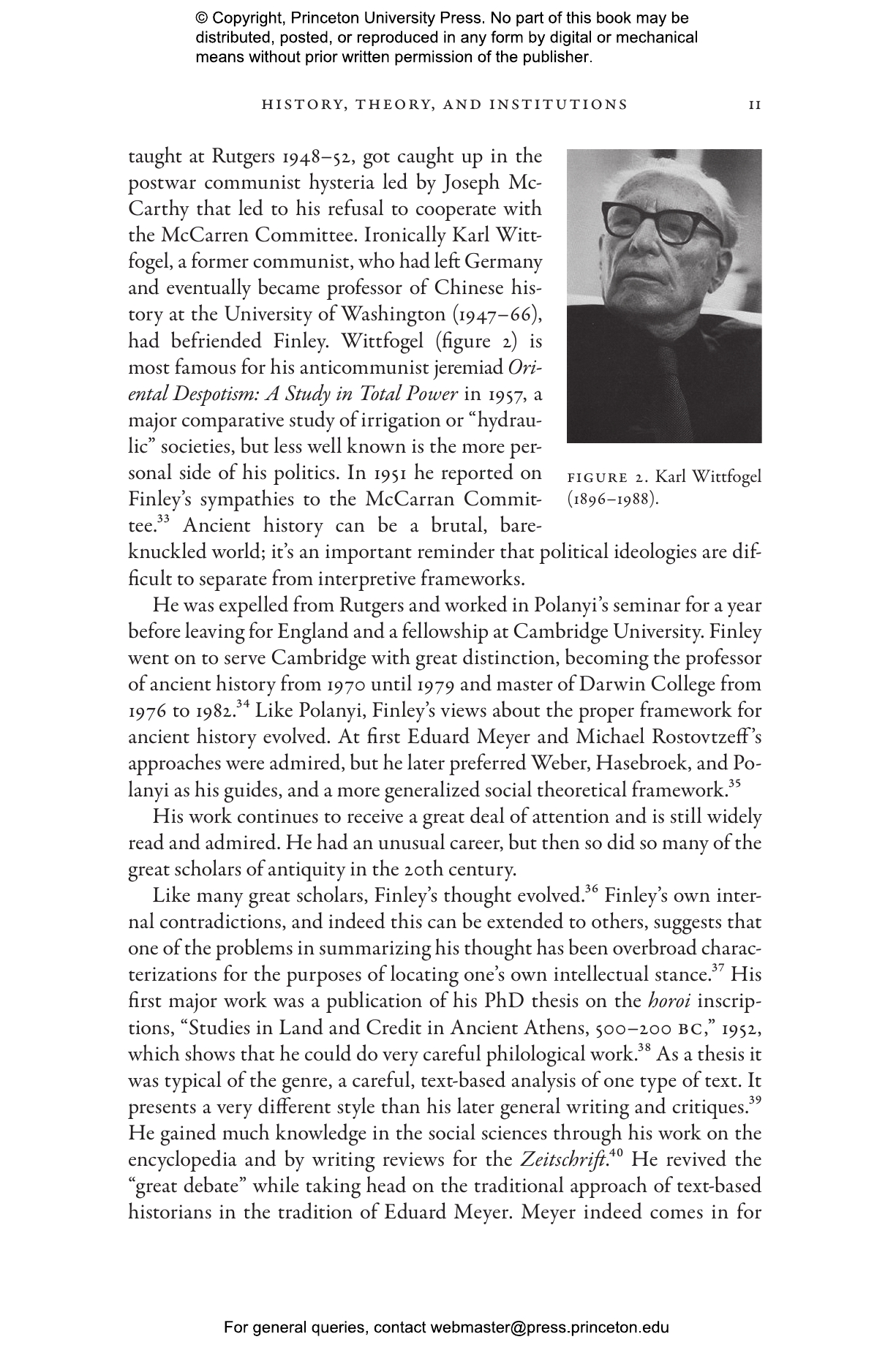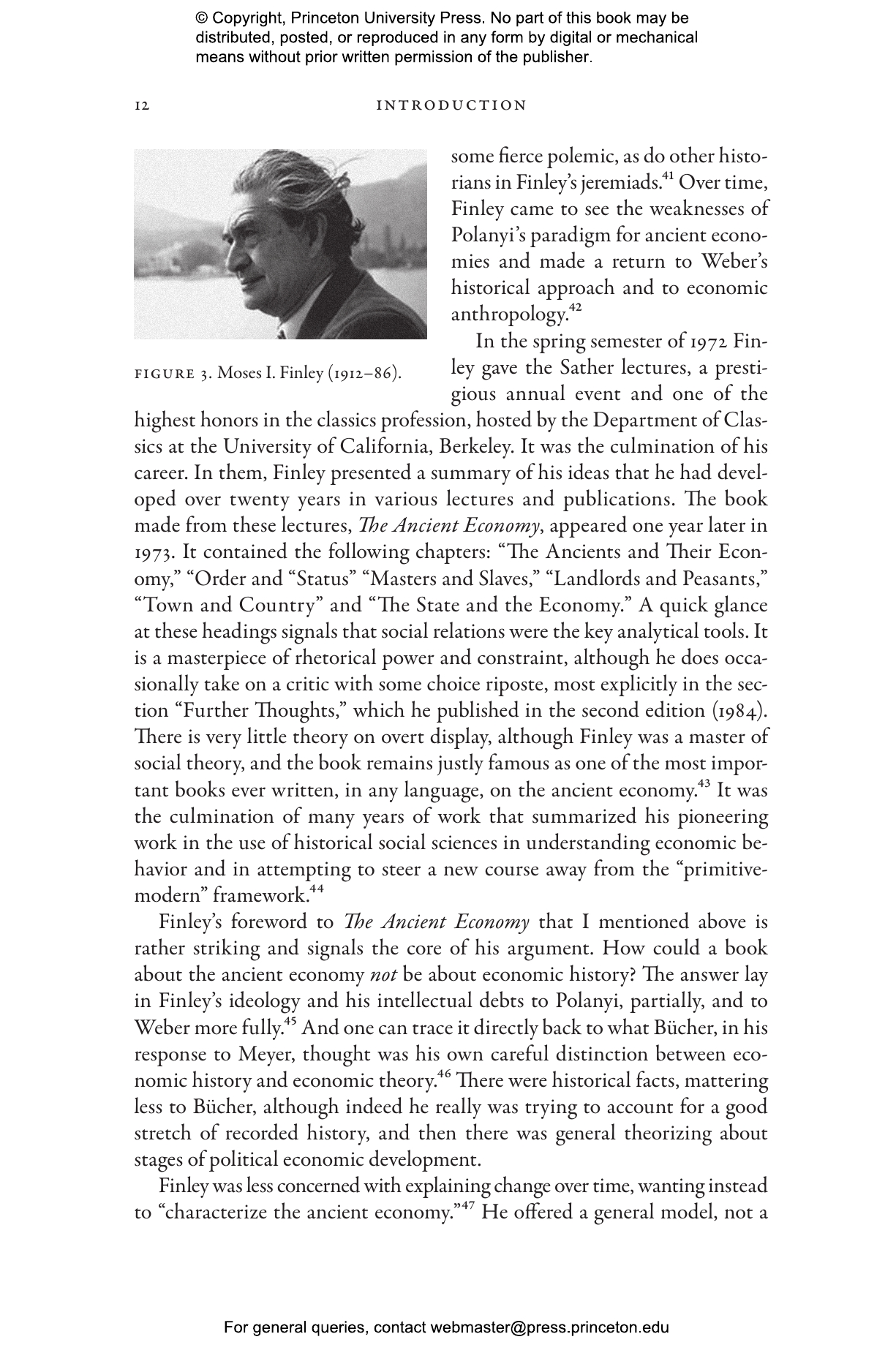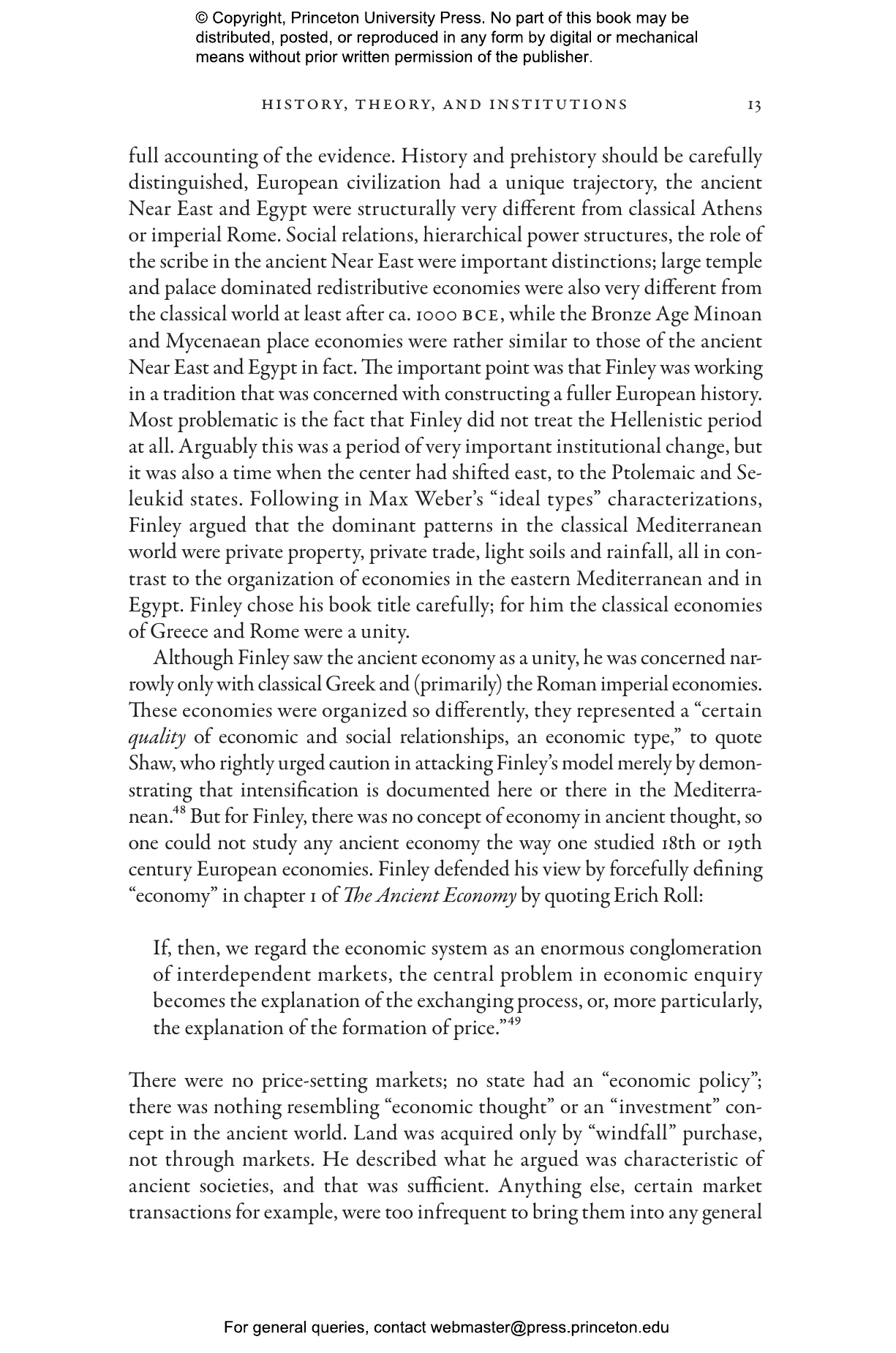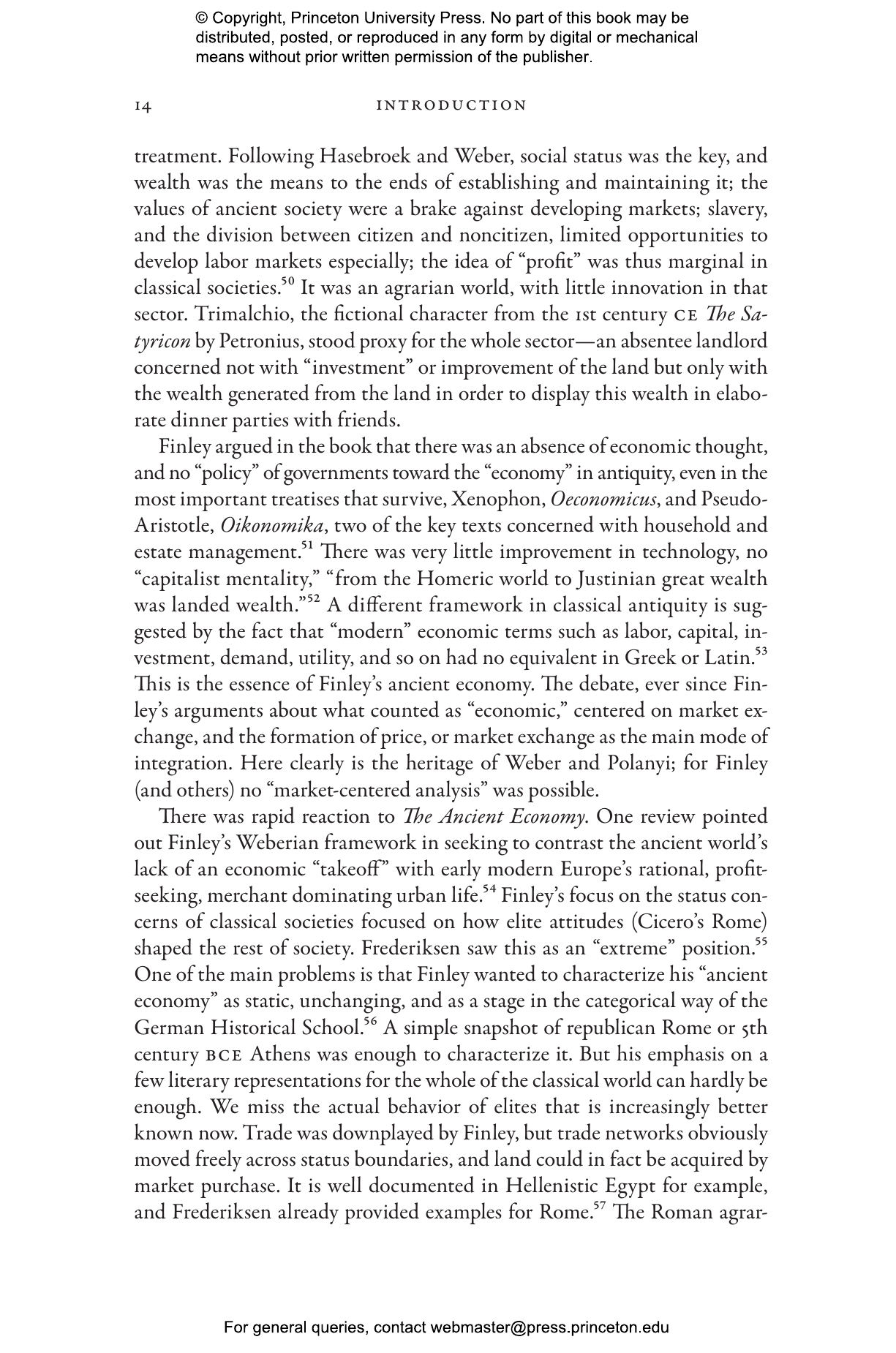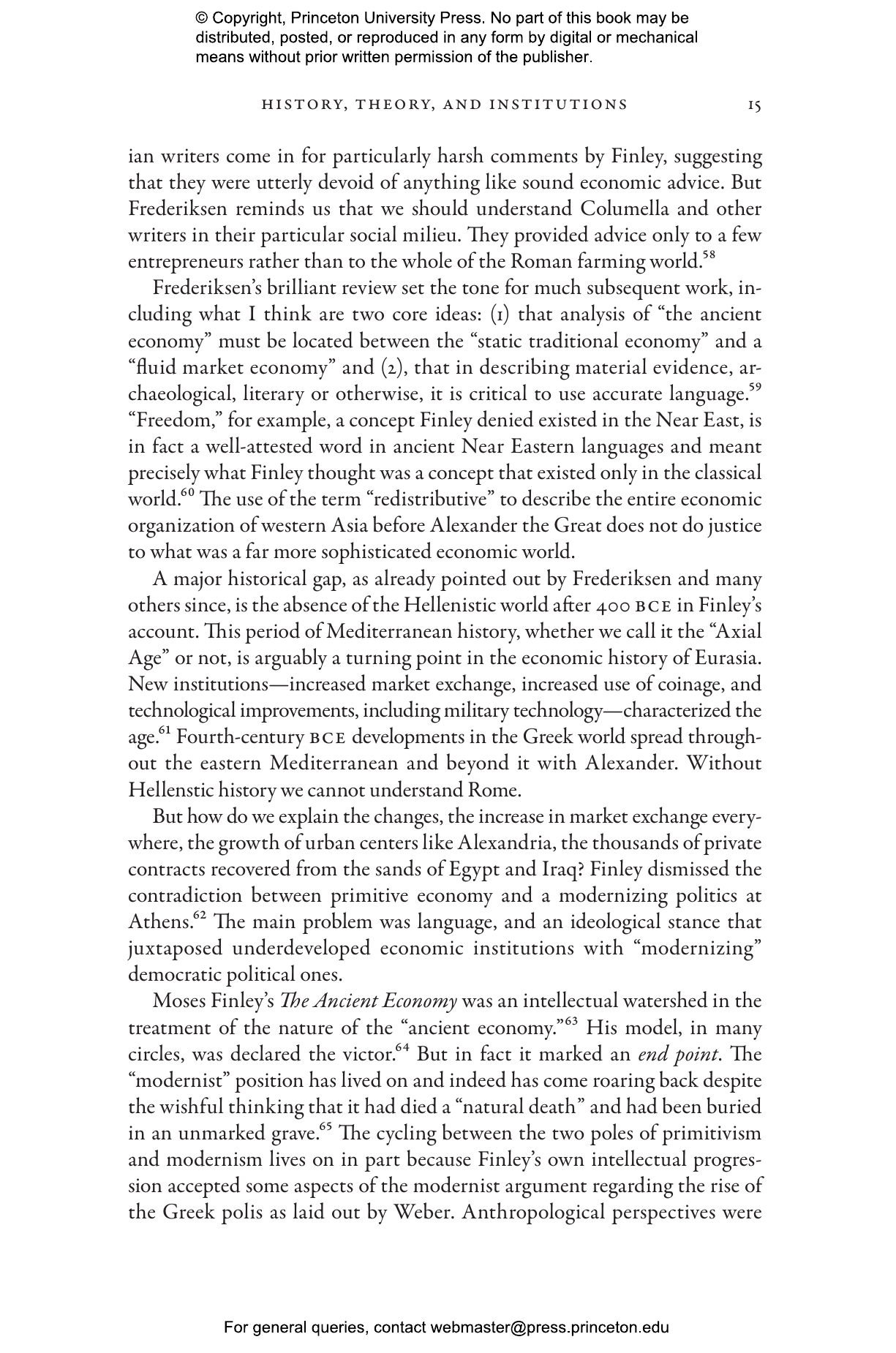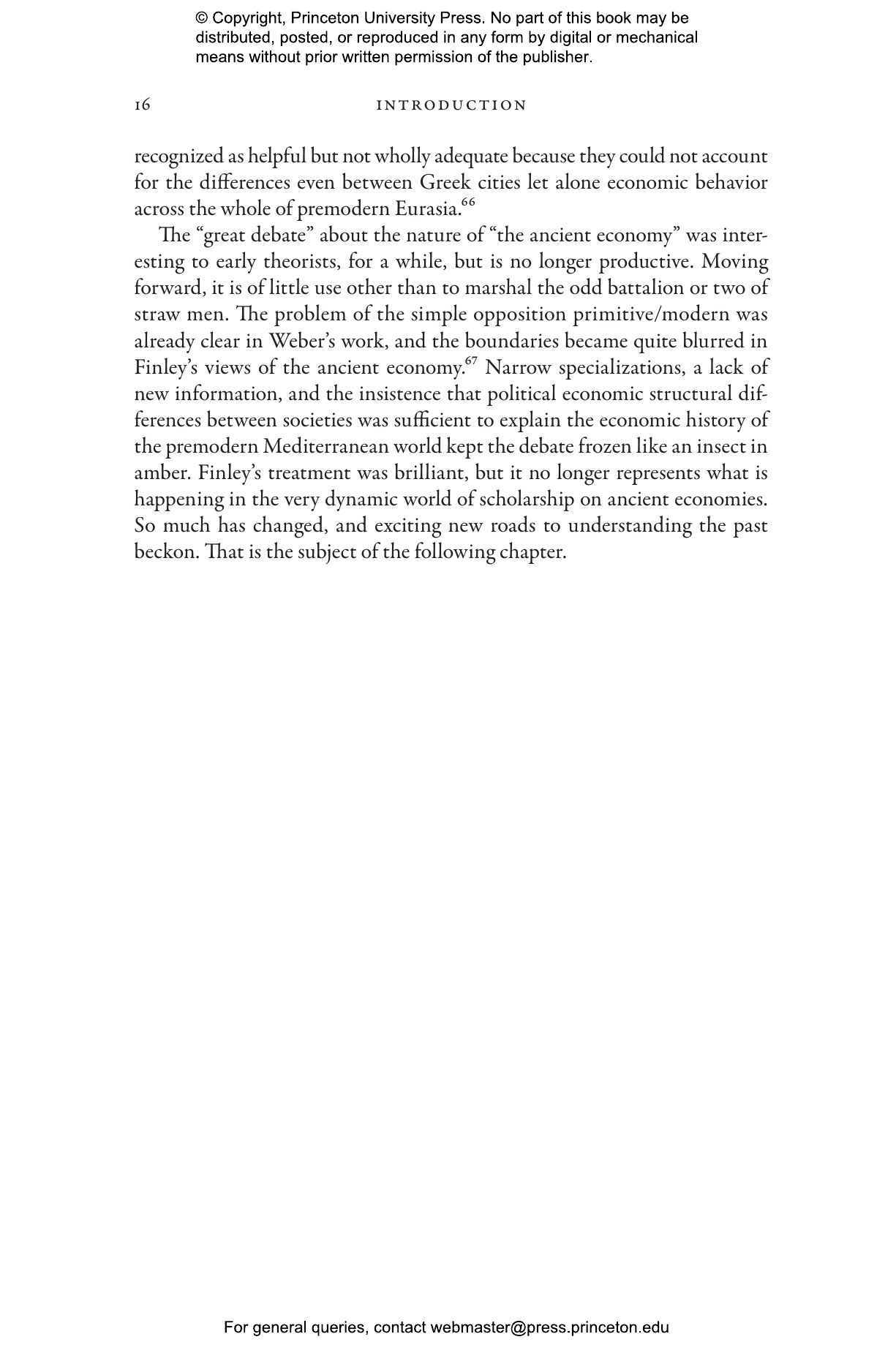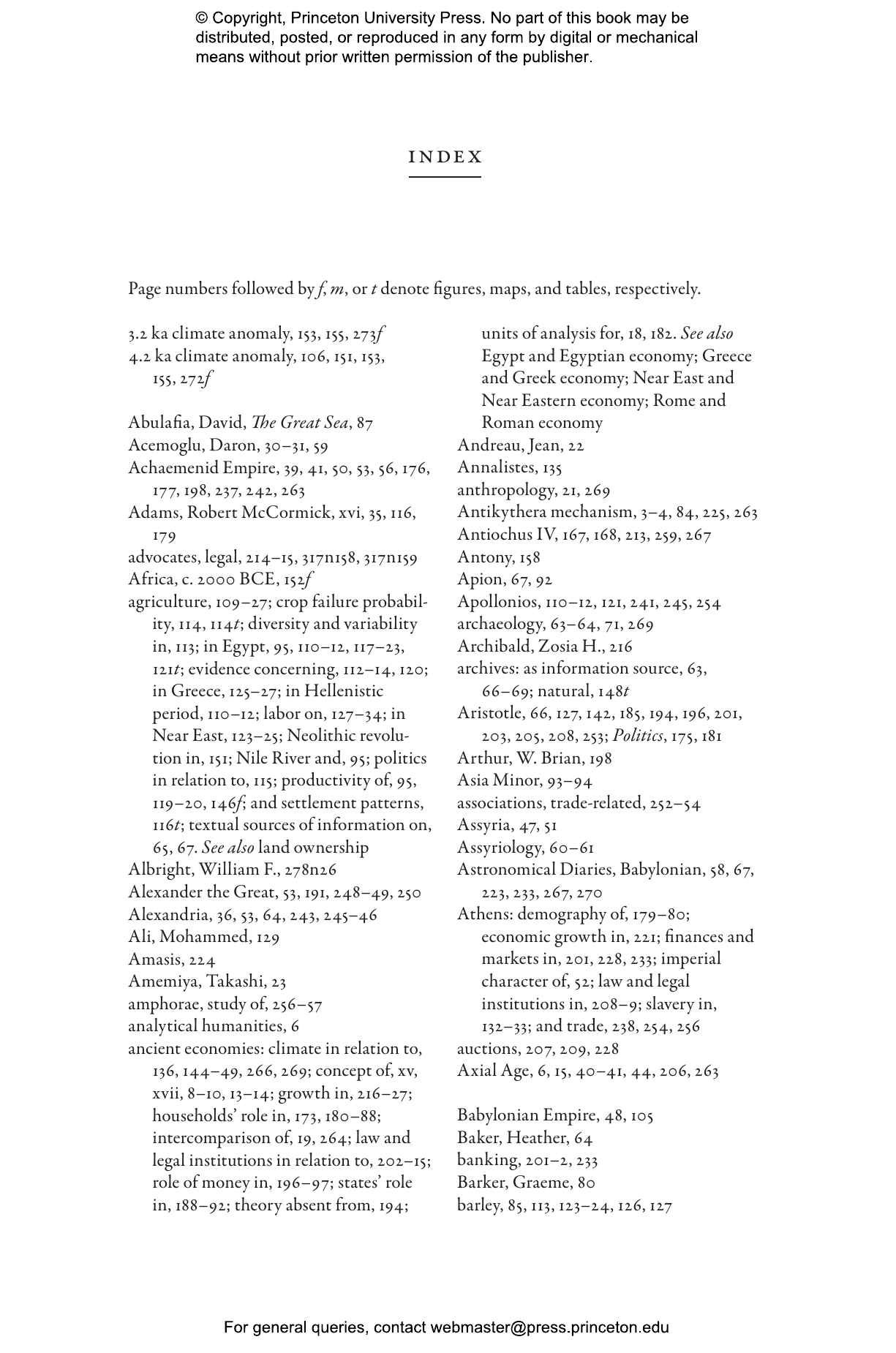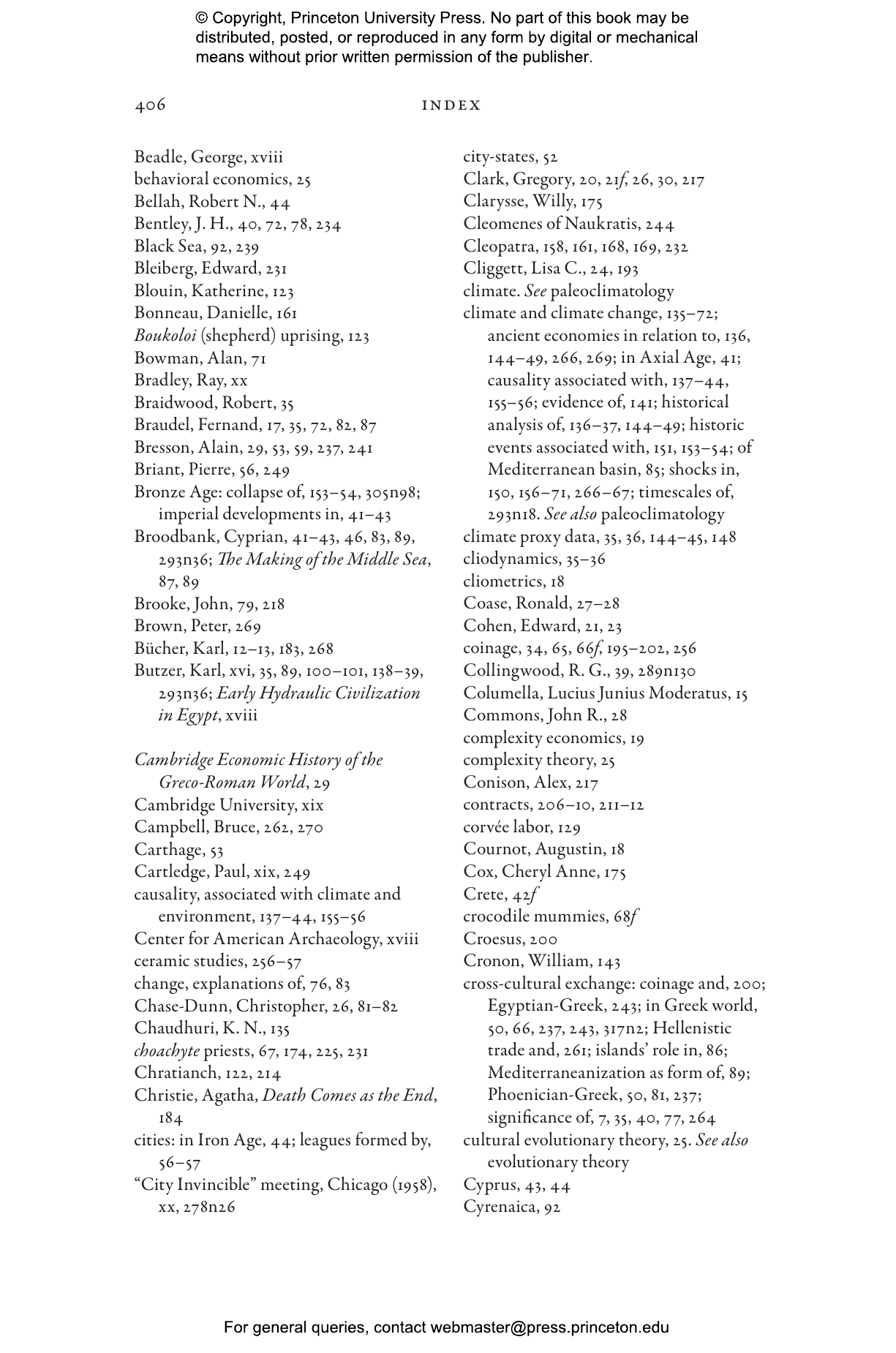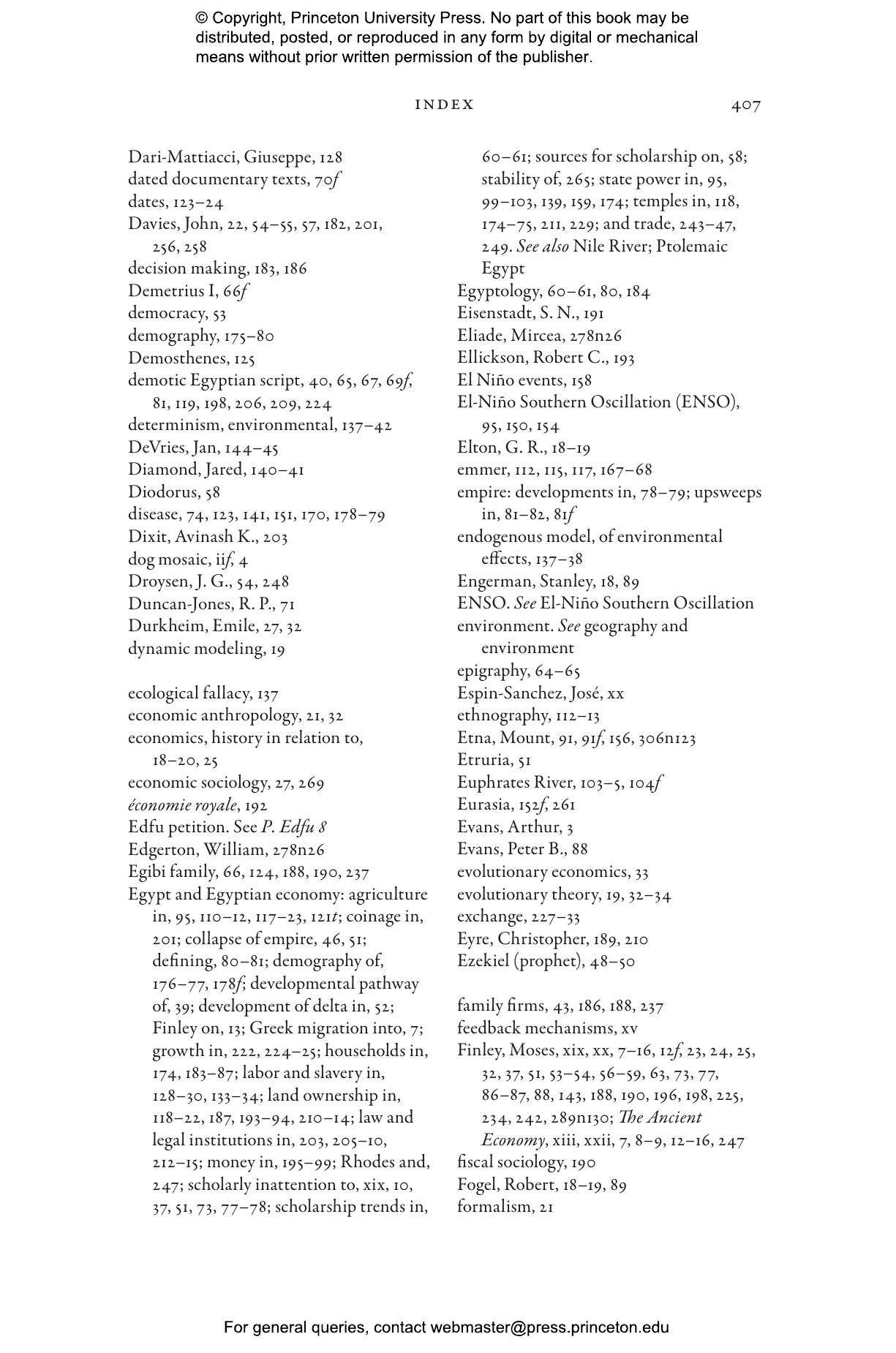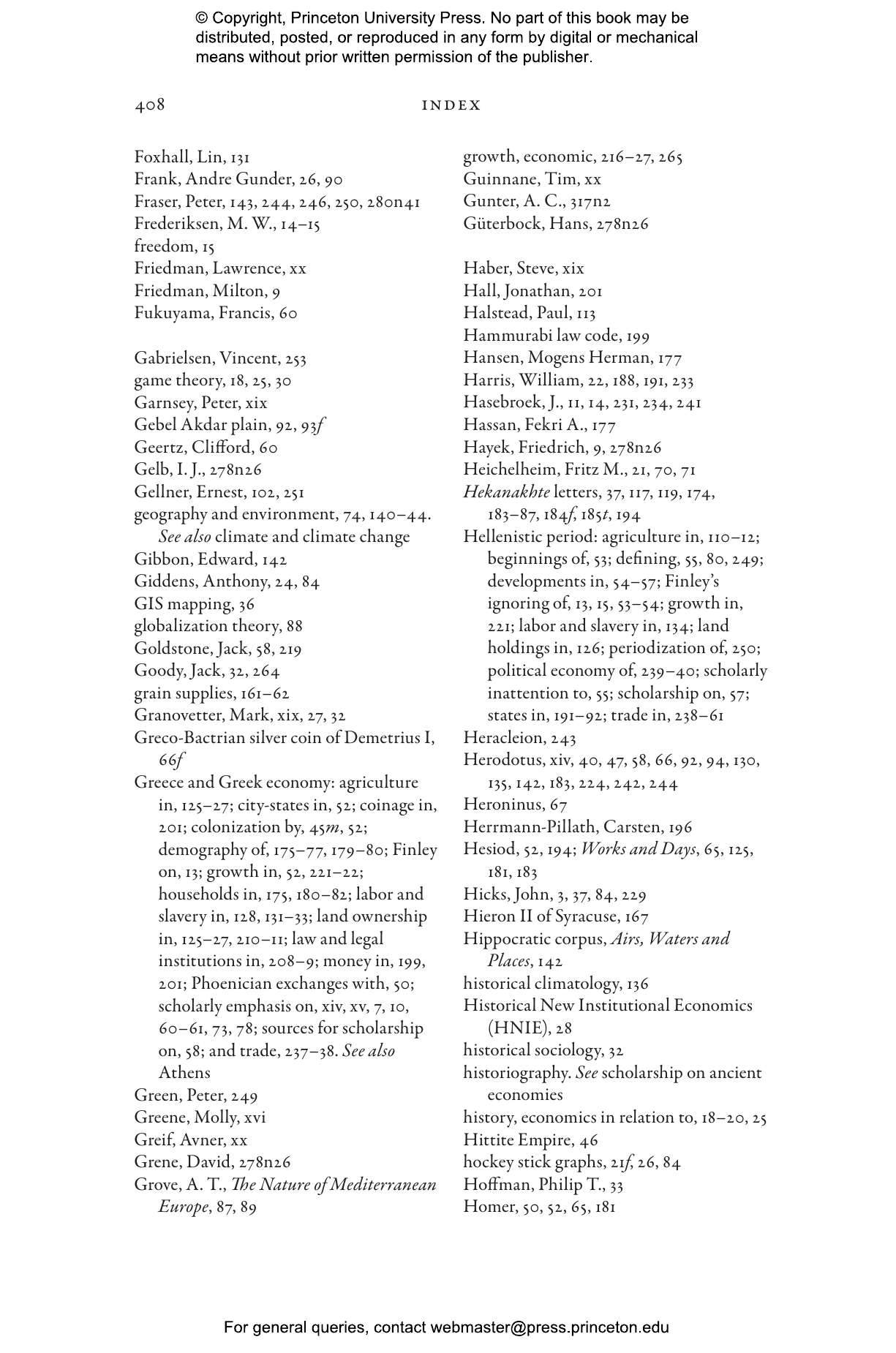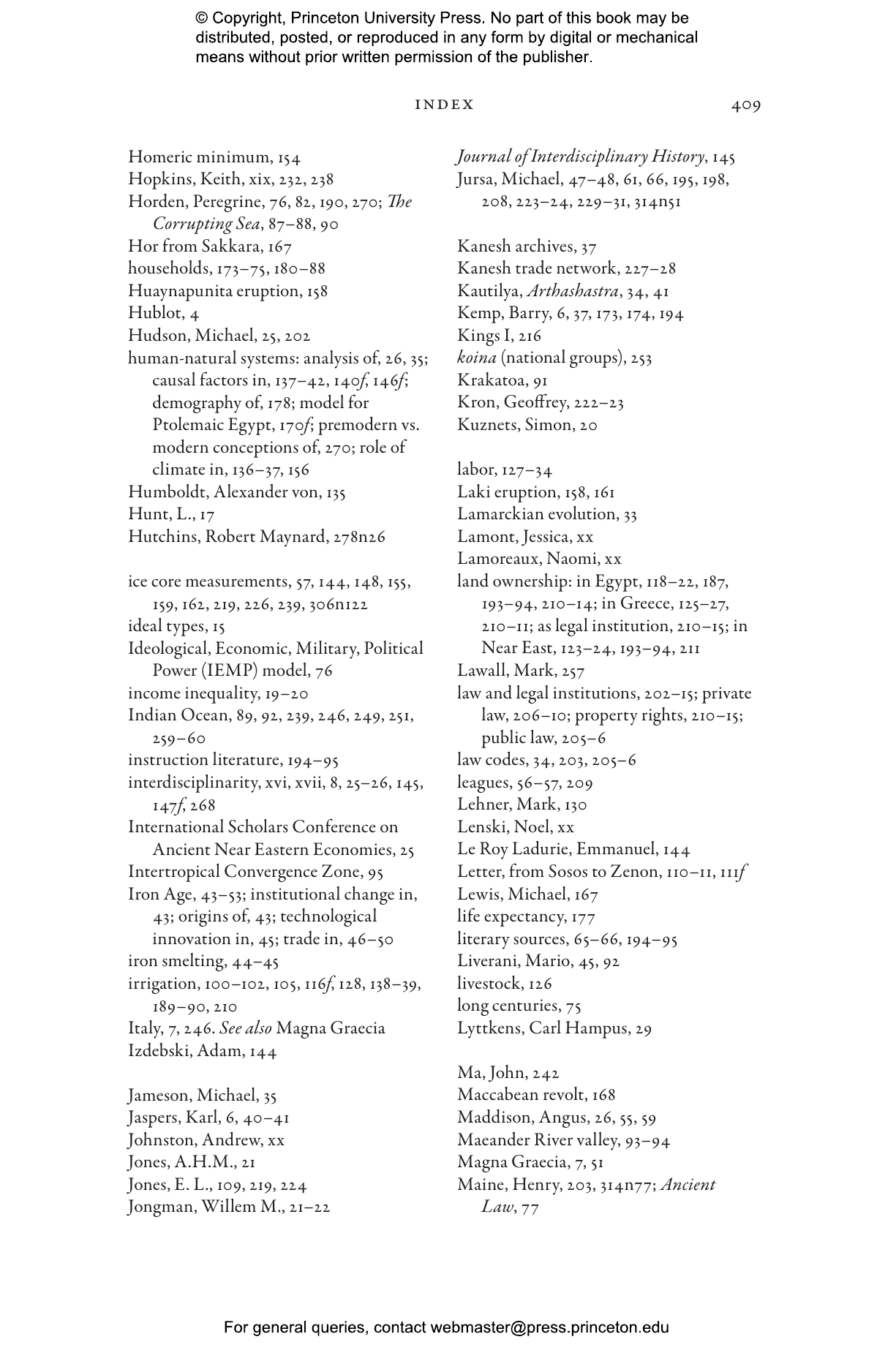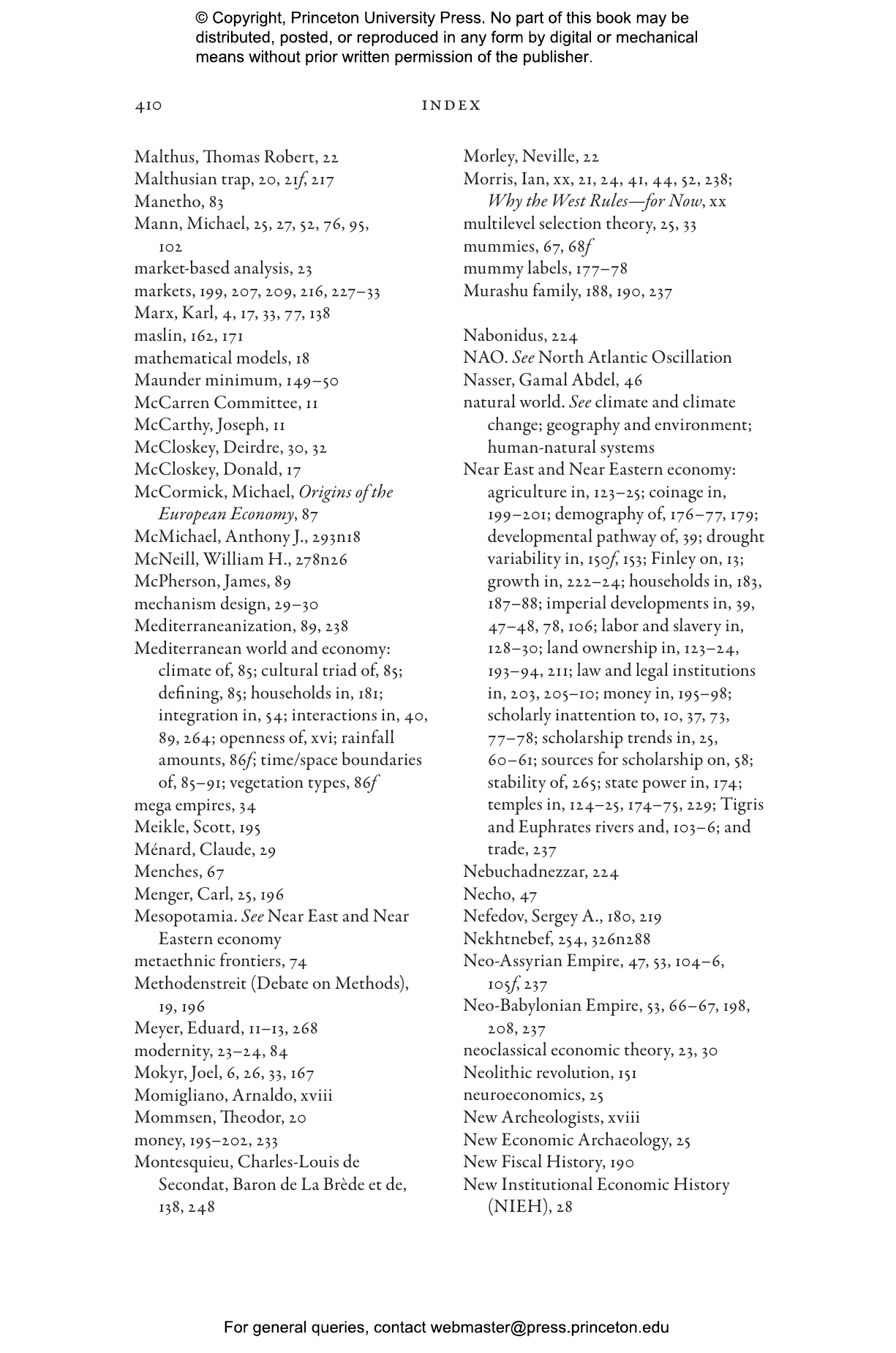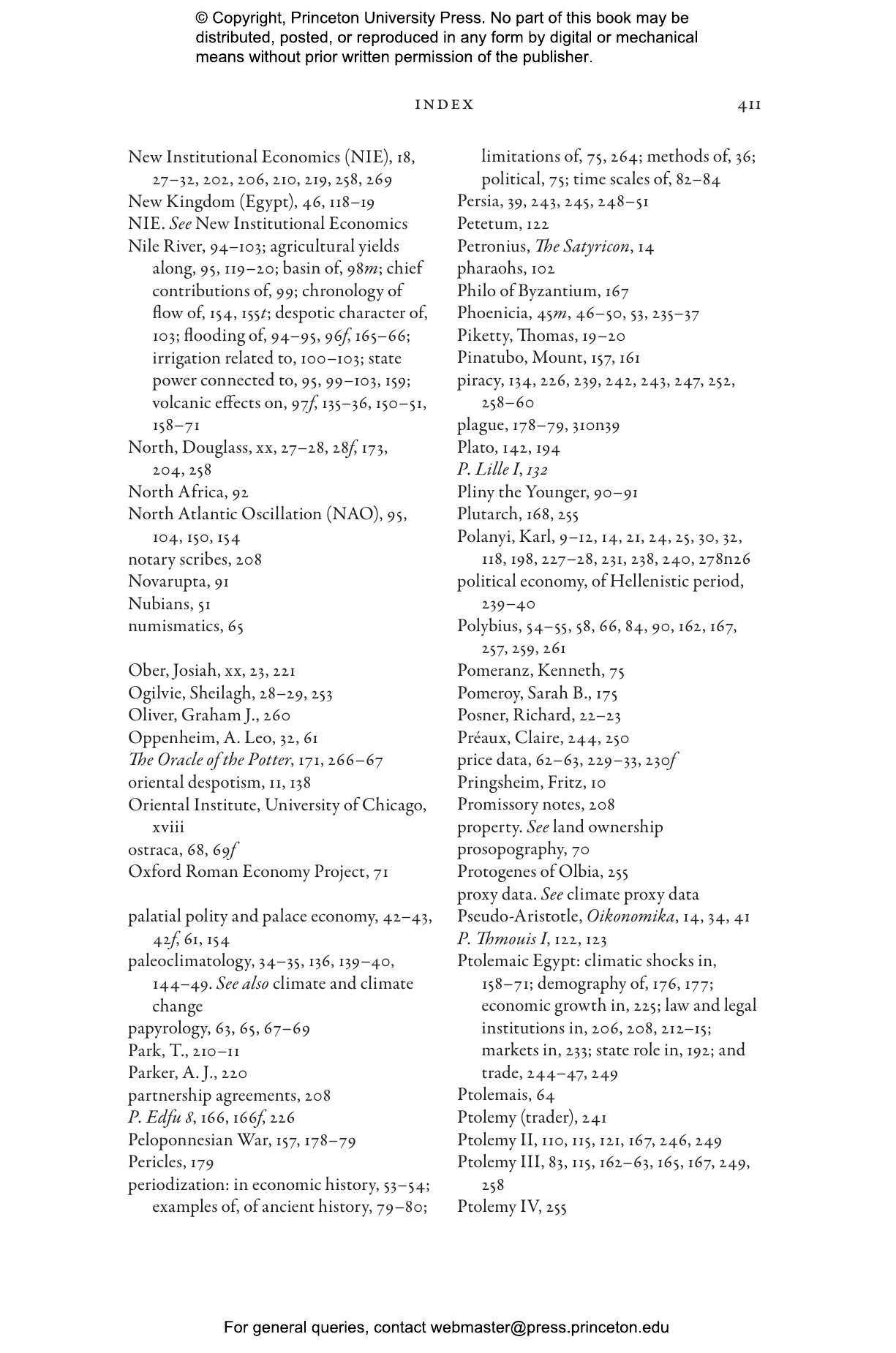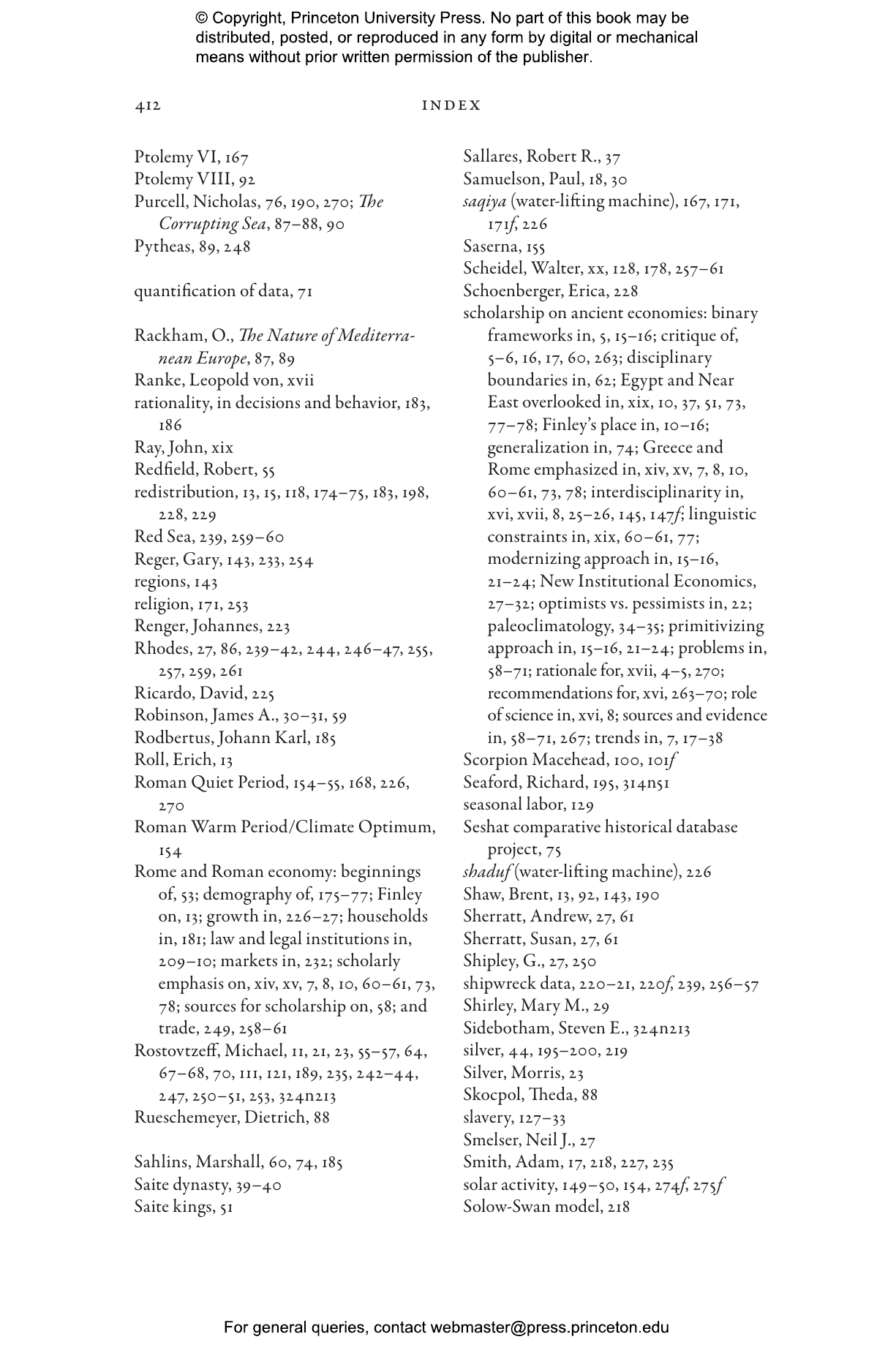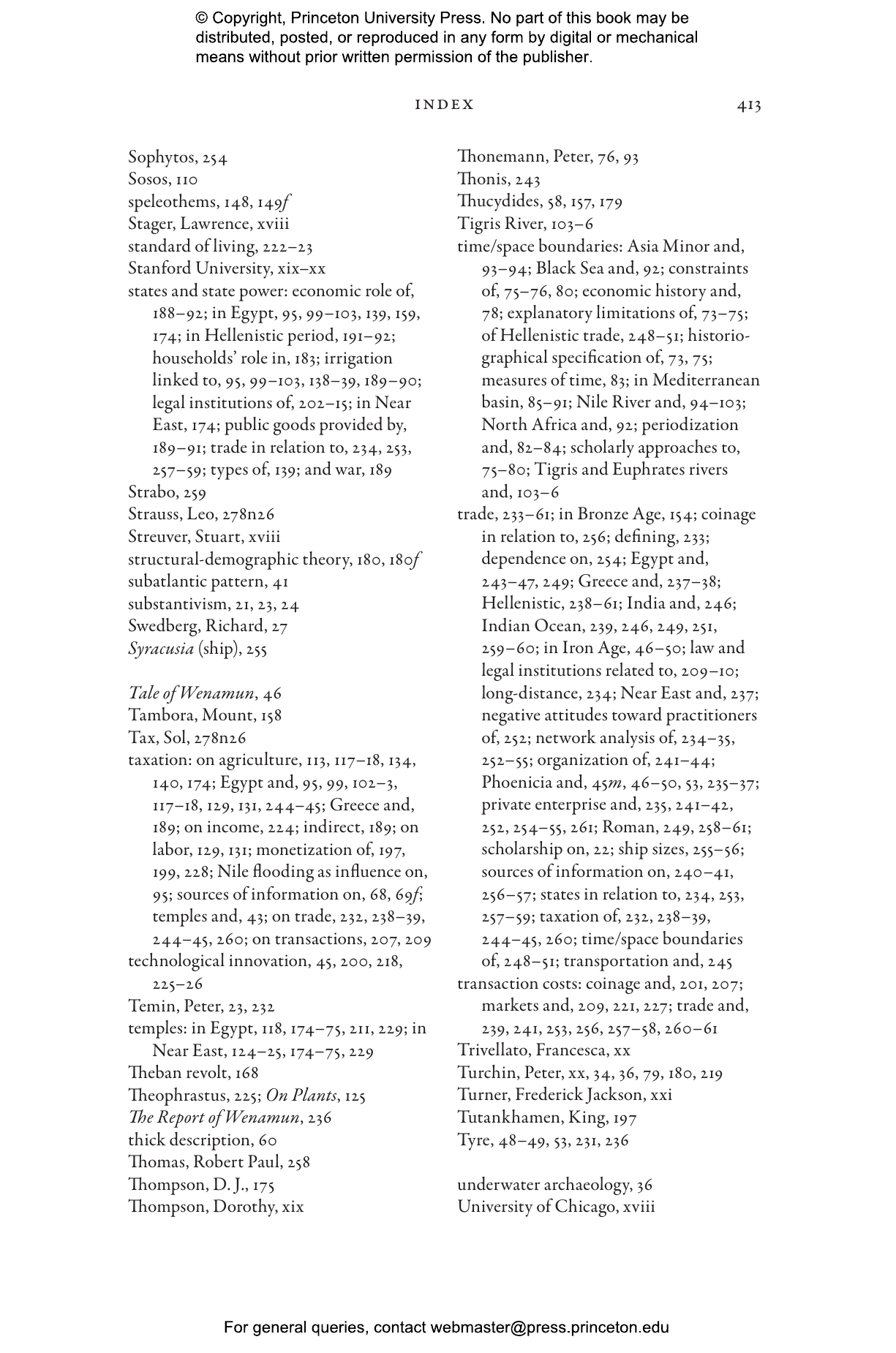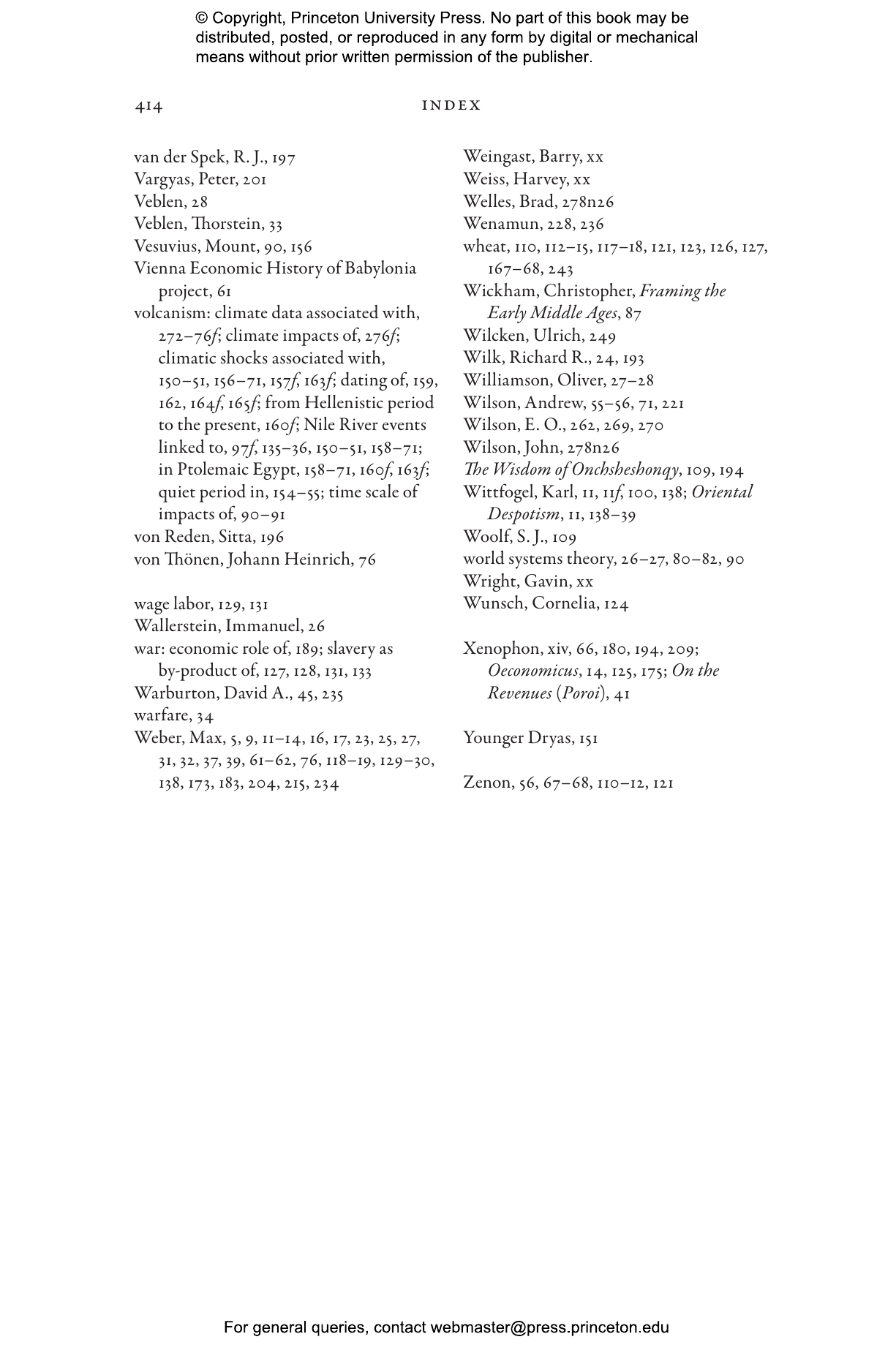In The Open Sea, J. G. Manning offers a major new history of economic life in the Mediterranean world in the Iron Age, from Phoenician trading down to the Hellenistic era and the beginning of Rome’s imperial supremacy. Drawing on a wide range of ancient sources and the latest social theory, Manning suggests that a search for an illusory single “ancient economy” has obscured the diversity of lived experience in the Mediterranean world, including both changes in political economies over time and differences in cultural conceptions of property and money. At the same time, he shows how the region’s economies became increasingly interconnected during this period.
The Open Sea argues that the keys to understanding the region’s rapid social and economic change during the Iron Age are the variety of economic and political solutions its different cultures devised, the patterns of cross-cultural exchange, and the sharp environmental contrasts between Egypt, the Near East, and Greece and Rome. The book examines long-run drivers of change, such as climate, together with the most important economic institutions of the premodern Mediterranean—coinage, money, agriculture, and private property. It also explores the role of economic growth, states, and legal institutions in the region’s various economies.
A groundbreaking economic history of the ancient Mediterranean world, The Open Sea shows that the origins of the modern economy extend far beyond Greece and Rome.
J. G. Manning is the William K. and Marilyn M. Simpson Professor of History and professor of classics at Yale University. He is the author of The Last Pharaohs: Egypt under the Ptolemies (Princeton) and Land and Power in Ptolemaic Egypt, and coeditor of The Ancient Economy: Evidence and Models.
"The author’s scholarly heft will impress and persuade his audience as to the validity and significance of his insights and contributions; 125 pages of endnotes and bibliography buttress his case."—A.R. Sanderson, Choice
"The truly new ground explored in The Open Sea lies at the intersection of environmental and economic history. . . . Manning provides a thoughtful overview of the challenges and prospects we face in integrating the paleoclimate into the study of ancient economies. . . . An expert and bracing survey."—Kyle Harper, EH.net
"The list of scholars who could produce a volume of this breadth and depth is surely a short one."—Journal of Markets and Morality
"The book must be judged a success . . . . especially in its first objective of providing the reader with an idea of
what the debate looks like at present, and a sense of where it might be going in the near future. Manning
has digested a colossal amount of scholarship, This book deserves to be on the shelf of anyone looking to see past the disciplinary boundaries of Graeco-Roman history and to understand how these civilisations fitted into a wider world."—David Lewis, Journal of Greek Archaeology
"Ranging over the entire Mediterranean from the Iron Age to the dawn of the Roman Empire, Manning draws on new evidence to rethink ancient history as a whole. Along the way, he makes clear what drove economic and institutional development in the ancient world: not huge empires but cross-cultural exchange and a very different sort of politics."—Philip T. Hoffman, author of Why Did Europe Conquer the World?
"For too long, specialists have drawn lines through the ancient Mediterranean, with Egypt and the Near East on one side and Greece and Rome on the other. True to its title, The Open Sea washes these lines away, reuniting what should never have been separated. Manning provides a unified view of the economies of the first millennium BC, and everyone interested in the period will want to read this book."—Ian Morris, author of Why the West Rules—for Now
